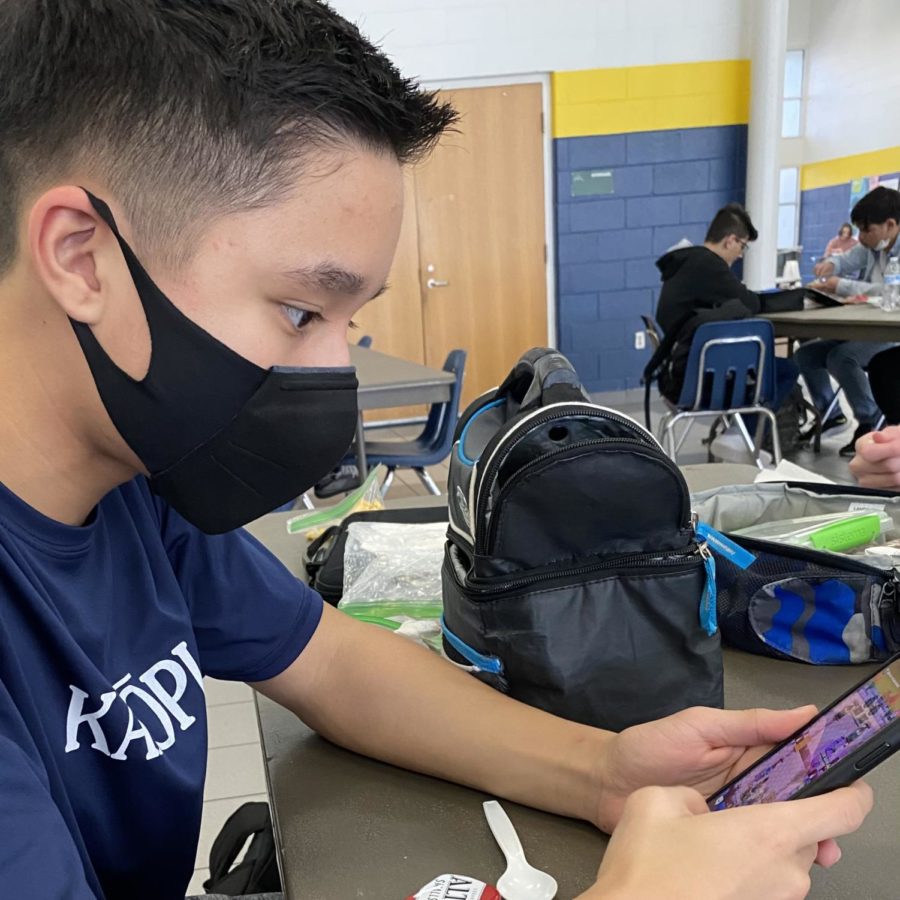Cell phone addiction controls teens’ minds
Freshman Kai England using his phone to play Clash Royale on March 17.
April 6, 2022
Cell phones still cause distractions in the classroom even though the school’s no-phone policy has been in place for two months now; the lack of strict enforcement of this policy has made it quite ineffective.
According to CNN, the average teenager spends seven and a half hours on their phone a day. Many teens do not know the effects of cell phone addiction.
Social media apps and games make it especially hard for students to concentrate in class. Notifications give a sense of validation through information provided on the latest content. Instagram, Snapchat, iMessage, and other communication apps create distractions if not checked frequently enough, due to a sense of “social absence”. Similarly, with games, distractions are created if not played or checked, due to a sense of “missing out on the fun”.
A study from Baylor University shows that cell phone addiction is almost as detrimental to the brain as other addictions, such as drugs and alcohol. Poorer overall performance in academics and inability to concentrate are just a few side effects of cell phone addiction.
Students complain about sleep deprivation and how lack of time management skills and early hours of school causes them to lose sleep and make it hard to concentrate on tasks. Although there are thousands of reasons and events related to loss of sleep, limited screen time usage can help provide a better good night’s sleep. Blue light emitted from cell phones and all devices cause the brain to think it is daytime. Although companies claim to make anti-blue light glasses to help with the emission, there is no official scientific evidence that it will completely eliminate symptoms.
Teachers like Jordan Turner and Kathy Turner, have enforced students to place all cellular devices away during instructional time. More teachers should enforce the policy more often to reduce addiction.
Some tips one could use for cell phone use management are placing the phone on silent or to put it out of sight, not in a pocket or backpack. Focus on the task at hand so that it creates a distraction from the phone. In extreme cases, ask a parent or guardian to set a screen time passcode on the phone after however many hours; this prevents unnecessary usage of a phone as well.
To better prevent cell phone usage in the classroom, teachers should strongly enforce the cell-phone policy. However, students need to realize that they should not rely on staff enforcement to get off their phones. Students should rely on self-improvement for themselves academically and physically. If everyone cooperates together, cell phones will be less of a distraction in the learning environment and more students will achieve academic success.


